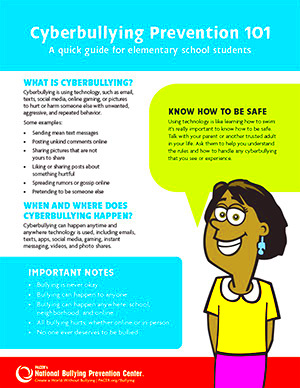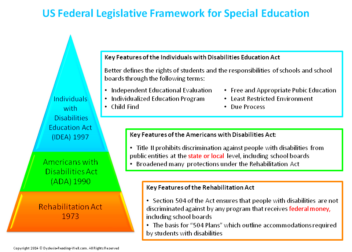Cyberbullying Prevention in Pennsylvania Schools
Cyberbullying is a serious issue affecting many students in Pennsylvania. It involves using digital devices, like smartphones and computers, to harass, threaten, or embarrass others. With the rise of social media, the prevalence of cyberbullying has increased significantly. Victims may experience anxiety, depression, and even suicidal thoughts due to the relentless nature of online harassment.
In Pennsylvania, understanding the nature of cyberbullying is crucial for developing effective prevention strategies. Here are some key points to consider:
- Definition: Cyberbullying includes sending harmful messages, spreading rumors, or posting embarrassing photos online.
- Impact: The emotional and psychological effects can be devastating for young people, leading to a decline in academic performance and social withdrawal.
- Anonymity: The perceived anonymity of the internet can embolden bullies, making it easier for them to target their victims.
Being aware of these factors is the first step in combating cyberbullying in our schools and communities.
Legal Framework Addressing Cyberbullying

In Pennsylvania, several laws and policies address cyberbullying. Understanding these legal frameworks is essential for schools, parents, and students. Here are some important aspects:
- Pennsylvania Anti-Bullying Law: This law requires schools to have policies that specifically address cyberbullying.
- Definition of Cyberbullying: The law defines cyberbullying and outlines the responsibilities of school districts in addressing incidents.
- Reporting Requirements: Schools must establish procedures for reporting and investigating cyberbullying incidents.
Additionally, students are protected under federal laws like Title IX, which prohibits discrimination based on sex, including harassment. Awareness of these legal frameworks can empower victims and their families to take action against cyberbullying.
Role of Schools in Cyberbullying Prevention

Schools play a vital role in preventing and addressing cyberbullying. They serve as safe environments where students can learn about respect, empathy, and digital citizenship. Here are some key responsibilities schools have:
- Education: Schools should implement programs that teach students about the dangers of cyberbullying and how to prevent it.
- Policy Development: Establishing clear policies and consequences for cyberbullying can deter students from engaging in harmful behavior.
- Support Systems: Schools must provide support for victims, including counseling services and resources for reporting incidents.
By actively engaging in prevention efforts, schools can foster a safer and more inclusive environment for all students.
Effective Strategies for Preventing Cyberbullying
Preventing cyberbullying requires a multi-faceted approach that involves students, parents, and educators. It’s not just about addressing incidents when they happen but also about creating an environment where kindness and respect thrive. Here are some effective strategies schools and communities can implement:
- Promote Digital Citizenship: Educating students about responsible online behavior can help them understand the impact of their actions. Workshops and programs can teach them to treat others with respect online, just as they would in person.
- Encourage Open Communication: Create an atmosphere where students feel safe discussing their online experiences. Encourage them to speak up if they witness or experience bullying.
- Utilize Technology: Use software and apps that help monitor online activity and flag inappropriate content. This can serve as a deterrent for potential bullies.
- Implement Peer Support Programs: Establishing peer-led groups can provide students with allies who can support them during tough times. This fosters a sense of community and belonging.
- Organize Awareness Campaigns: Schools can host events like “Anti-Bullying Day” to raise awareness and encourage students to take a stand against bullying.
By working together and implementing these strategies, communities can significantly reduce instances of cyberbullying and promote a culture of respect and empathy.
How Parents Can Help Prevent Cyberbullying
Parents play a crucial role in preventing cyberbullying. Their involvement can make a significant difference in how children navigate the online world. Here are some practical steps parents can take:
- Educate Themselves: Parents should stay informed about social media platforms and online trends. Understanding where cyberbullying may occur helps them guide their children more effectively.
- Open Lines of Communication: Establishing an environment where children feel comfortable discussing their online activities is vital. Ask open-ended questions about their day and online interactions.
- Set Boundaries: Establish rules around technology use. Limit screen time and encourage breaks from social media to foster healthier habits.
- Encourage Empathy: Teach children the importance of kindness online. Discuss the feelings of others and why empathy is essential in all interactions.
- Monitor Online Activity: While respecting privacy, parents should occasionally check in on their child’s online presence. This can include reviewing their social media accounts and understanding who they interact with.
By taking these steps, parents can help create a supportive environment that discourages cyberbullying and promotes positive online interactions.
Importance of Reporting and Support Systems
Reporting incidents of cyberbullying and having strong support systems in place is essential for addressing this issue effectively. When students feel supported, they are more likely to speak up about their experiences. Here’s why reporting and support systems are crucial:
- Validation of Experience: When a student reports cyberbullying, it acknowledges their feelings and experiences. This validation can be an essential step in their healing process.
- Action Against Bullying: Reporting allows schools and authorities to take appropriate action. It helps identify patterns of behavior that need to be addressed and prevents future incidents.
- Access to Resources: Support systems provide victims with access to counseling and resources to help them cope with the emotional impact of bullying.
- Empowerment: Encouraging students to report bullying can empower them and their peers to take action against unacceptable behavior.
- Creating a Safe Environment: When incidents are reported and addressed, it fosters a culture where bullying is not tolerated, making schools safer for everyone.
Overall, establishing robust reporting and support systems is vital for effectively combating cyberbullying and creating a more positive school culture.
Resources for Victims of Cyberbullying
For victims of cyberbullying, it’s essential to know that help is available. Many resources can provide support, guidance, and a sense of community for those experiencing online harassment. Here’s a list of valuable resources:
- Crisis Text Line: This service offers 24/7 support via text. Just send a message to 741741 to connect with a trained crisis counselor who can provide immediate assistance.
- National Suicide Prevention Lifeline: If feelings of hopelessness or despair arise, reaching out to this hotline at 1-800-273-TALK (8255) can be lifesaving. They offer free and confidential support.
- StopBullying.gov: This government resource provides information on recognizing bullying, how to report it, and resources for victims and parents alike.
- Local Support Groups: Many communities have local organizations dedicated to helping victims of bullying. These groups often offer counseling, workshops, and peer support.
- School Counselors: Encourage students to speak with their school counselors about their experiences. Counselors can provide guidance and connect them with appropriate resources.
Utilizing these resources can help victims regain their confidence and find ways to cope with the challenges of cyberbullying.
FAQ About Cyberbullying Prevention
Many people have questions about cyberbullying and how to prevent it. Here are some frequently asked questions that can help clarify important aspects:
- What is cyberbullying? Cyberbullying involves using digital platforms to harass, embarrass, or threaten someone, often anonymously.
- How can I recognize signs of cyberbullying? Signs may include a child becoming withdrawn, changes in mood, or a sudden change in their online behavior.
- What should I do if I witness cyberbullying? Report the behavior to the appropriate authorities, whether it’s school officials or the platform where it occurred.
- How can schools effectively prevent cyberbullying? Schools can implement educational programs, establish clear policies, and promote a culture of respect and empathy.
- What role do parents play in prevention? Parents can educate their children about online behavior, maintain open communication, and set appropriate boundaries for technology use.
Understanding these aspects can empower individuals to take action against cyberbullying and foster a supportive environment for everyone.
Conclusion on Cyberbullying Prevention Efforts
Cyberbullying is a pressing issue that requires the collective effort of students, parents, schools, and communities. By working together and implementing effective strategies, we can create safer environments for our children. Awareness and education are key components in preventing cyberbullying. Here’s what we can take away:
- Open Dialogue: Encourage conversations about online behavior and the impact of cyberbullying.
- Strong Policies: Schools must establish clear policies to address and prevent cyberbullying.
- Support Systems: Providing resources and support for victims can help them heal and feel empowered.
- Community Involvement: Everyone can play a role in fostering a culture of respect and kindness, both online and offline.
Ultimately, by being proactive and vigilant, we can reduce the prevalence of cyberbullying and promote a more positive online community. Let’s continue to stand together against cyberbullying and support one another in creating a safer world for everyone.


